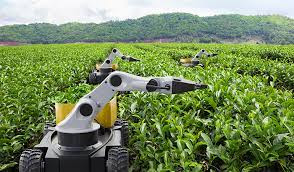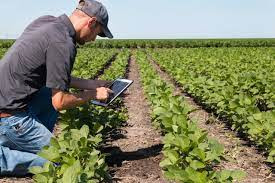Food waste isn't just a kitchen sink issue; it's a global one, with a shocking one-third of all food produced for human consumption going uneaten. Food waste impacts our wallets and burdens the environment with unnecessary waste and resource depletion. By adopting the creativity and clever hacks of Benedict T Palen Jr, you can all become kitchen warriors against food waste, saving money and the planet one bite at a time.
Planning Makes Perfect
Before even stepping foot in the grocery store, let's strategize. Planning meals for the week helps you buy what you need, avoiding impulse purchases that often languish in the fridge. This "menu magic" can be a fun family activity, encouraging healthy choices and reducing last-minute takeout sprees. Build a flexible grocery list based on your planned meals, minimizing food waste and maximizing flavors.
Leftovers: From Forgotten Feast to Fantastic Future Meals
Leftovers can be more than just sad desk lunches. Get creative! Leftover roasted chicken transforms into chicken salad sandwiches, a creamy pot pie filling, or decadent pizza topping. Wilting greens get a new lease on life in vibrant smoothies or hearty soups. Cooked grains like quinoa or brown rice become the base for nourishing Buddha bowls or flavorful frittatas. Embrace the "remix mentality" and see leftovers as culinary canvases, not scraps.
Fruit and Veggie Magic: From Ripe to Reimagined
Overripe bananas are begging for banana bread or pancakes. Soft berries become vibrant jams or vibrant compotes. Wilting herbs infuse olive oil with delicious flavor, while limp celery stalks form the base for a punchy green salsa. Don't let blemishes or bruises deceive you; imperfect produce often packs the most flavor. Benedict T Palen Jr thinks we should seek out imperfect produce at reduced prices, saving money and giving delicious vegetables a second chance.
Storage Smarts: Keeping Food Fresher, For Longer
Proper storage is key to extending the shelf life of your precious groceries. Invest in airtight containers for open packages, preventing oxidation and keeping food crisper. Learn the art of fridge organization: store leafy greens in the crisper drawers, ethylene-sensitive fruits and vegetables separately, and avoid overcrowding shelves, which hinders proper air circulation. Utilize the wonders of the freezer: portion out meat and fish for future meals and freeze ripe fruits and vegetables for smoothies or baking.
Waste Not, Want Not: Embracing the Power of Transformation
Peelings, cores, and stems must not be relegated to the bin. Vegetable scraps form the base for flavorful broths and stocks, adding depth and nutrition to future soups and stews. Coffee grounds become enriching compost for your garden, while eggshells morph into natural cleaning abrasives. Embrace the spirit of resourcefulness and unlock the hidden potential within those seemingly "disposable" bits.
Conclusion
Reducing food waste doesn't have
to be a chore; it can be a delicious adventure in culinary creativity and
resourcefulness. By embracing these simple tips and tricks of Benedict TPalen Jr, you can save money, nourish your body, and lighten your
environmental footprint one meal at a time. So, let's ditch the bin and unlock
the hidden potential within our kitchens, proving that when it comes to food,
waste is truly just another word for opportunity.









